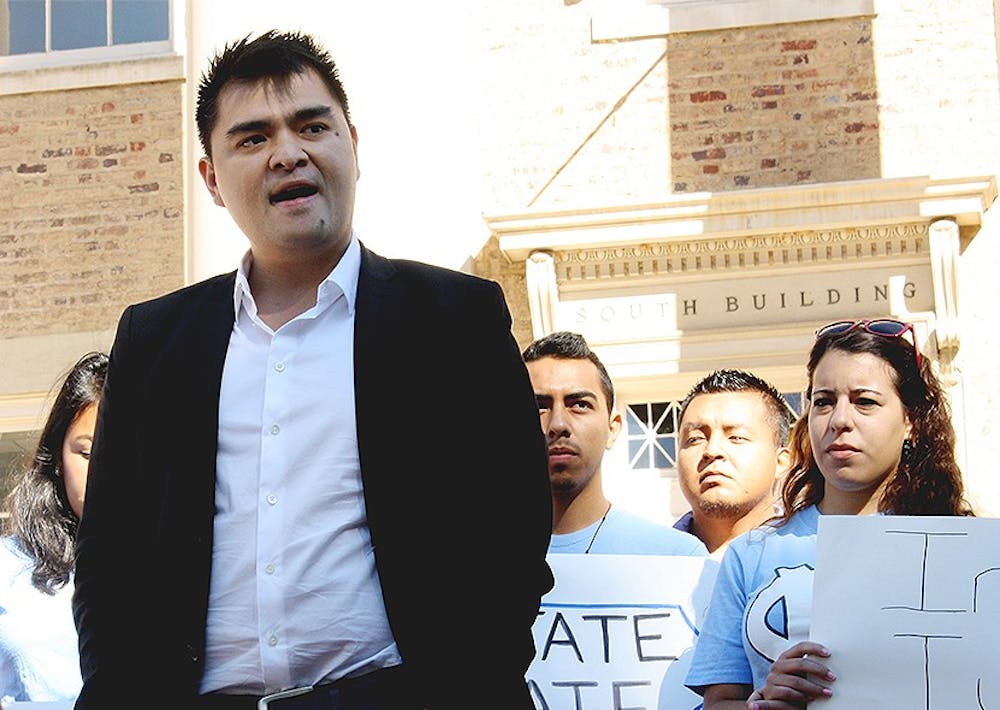From the steps of South Building Tuesday morning, Jose Antonio Vargas, a Pulitzer Prize-winning author and reporter, called for greater access to higher education for immigrant students.
Vargas’ speech focused mainly on those immigrants in the U.S. without documentation — immigrants like him.
“If it wasn’t for a private scholarship, I wouldn’t have been able to attend college for four years,” said Vargas to a small but impassioned crowd of protestors.
In a 2011 New York Times Magazine story, Vargas revealed his identity as an immigrant who came to the country illegally from the Philippines at a young age. Since then, he has worked as an advocate for immigrants without documentation, participating in events such as Tuesday’s protest at UNC for immigrant education rights.
The protest was part of an initiative called “One State, One Rate,” which was spearheaded by UNC’s Students United for Immigrant Equality.
After a press conference, the group presented a petition with 888 signatures to Chancellor Carol Folt’s office calling for in-state tuition rates for students without documentation.
Senior Maria Rodriguez, the co-chairwoman of the group, said she was involved in the event to show support for immigrants without documentation across the state — including her sister.
“I was very afraid for very long to tell my story, but this campaign is an amazing opportunity for me to say that it would be unfair for my sister, who is a junior in high school, to not attend UNC when she is more brilliant than I have ever been,” she said.
Rodriguez said she could not bear the thought of seeing her sister lose the same educational opportunities that she has.



